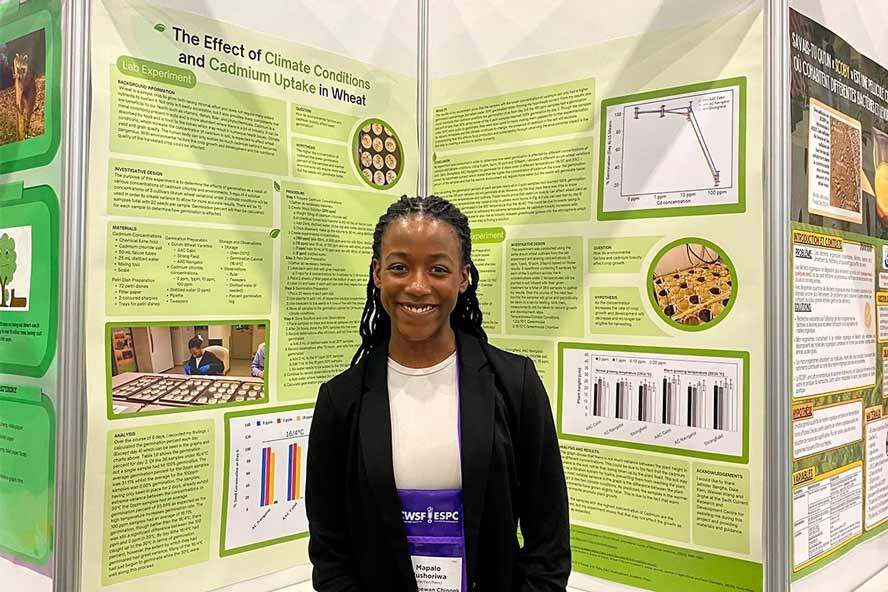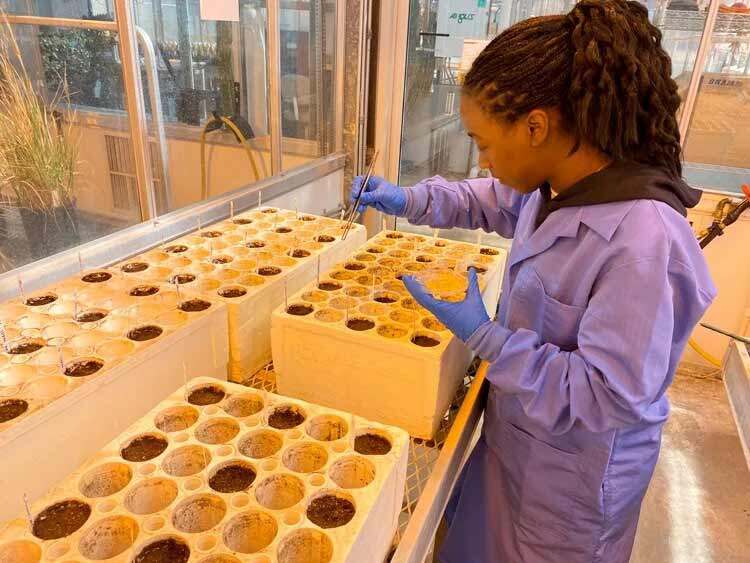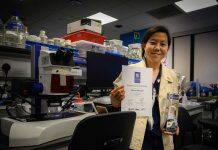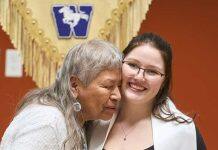

Mapalo Mushoriwa wouldn’t exactly call herself a “true crime girl.” But she’s unafraid to explore the complexities of criminal psychology to advance her vision of compassionate justice.
Mushoriwa, who starts her studies in forensic science at the University of Toronto Mississauga this fall, says her fascination stems from a high school essay on wrongful convictions, which prompted her to delve into the role of mental health in the criminal justice system.
What she found was a prison system that often emphasizes punishment over rehabilitation, which she sees as essential to reducing recidivism and crime.
At U of T Mississauga, Mushoriwa hopes to explore interventions that help inmates receive the comprehensive and compassionate care they need, benefiting both the individuals and society at large.
“The way I see it, there are multiple layers to every story,” she says. “It takes a certain kind of person to be able to look at that individual, despite the terrible crimes they’ve committed, and then see a person, as well as hold them accountable for what they’ve done.”
Mushoriwa is no stranger to scientific inquiry – especially where there is a social impact. She represented her hometown of Swift Current, Sask., at the Canada-Wide Science Fair two years in a row, taking a senior bronze excellence award in May.
Her two-part experiment investigated how varying concentrations of cadmium, combined with different temperature conditions, could affect seed germination and the growth of wheat, a critical crop in her community of roughly 18,000.
Mushoriwa says the findings were inconclusive, but a research lab is continuing the investigation, which she hopes will eventually yield valuable insights for local farmers.
“It was a very close-to-home project,” Mushoriwa says, noting that while her family isn’t involved in farming, many in her tight-knit community are witnessing the effects of toxins on crop production firsthand.


In addition to her forensic science studies at U of T, Mushoriwa hopes to explore her creative side with a minor in drama. She says she discovered a passion for the stage in high school, winning a regional award for acting excellence for her lead role in The Inexplicable Chaos Factor of Mia Gregory, a play that tackles themes of mental health.
“I got so immersed in that world and wanting to share that story that it was like this intense passion, where I sort of found a way to combine me and the character I was playing,” Mushoriwa says. “It was just an experience like no other.”
It was one of many extracurriculars that kept Mushoriwa engaged in her community. In high school, she served as secretary of the student leadership council, led the grad committee and was captain of the soccer team. She is also an active member of her church’s youth group.
Growing up, Mushoriwa says she dreamed of attending U of T. Now, she feels like she’s achieved her happy ending – and then some.
Not only is she pursuing her passion at her top-choice university, but she’s also among a select group of recipients of the National Scholarship, U of T’s most prestigious award for Canadian high school students entering the university.
After losing her mother at age 12, Mushoriwa says her father devoted himself to giving her every opportunity. She says the scholarship – which covers tuition, incidental fees and residence costs for up to four years of study – feels like a shared reward for all the hard work and sacrifices they’ve made together.
“I thought, well, isn’t that just perfect?” Mushoriwa says. “The school I wanted to go to since I was young, the exact degree [I was interested in] – I couldn’t ask for it any other way.”
As eager as she is to start her journey at U of T Mississauga, Mushoriwa admits she has mixed feelings about moving away from her father and the tight-knit Swift Current community that has supported her every step of the way.
“My father and I are basically inseparable, so it might be tough to be so far away,” she says. “What I’m excited about is the growth I’ll experience personally.
“Maybe I’ll learn something new about myself.”






































